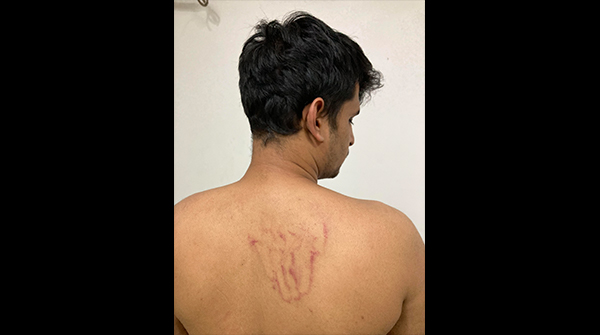
Five years ago today, #RohithVemula, a Dalit scholar, took his life after he and four students from the Ambedkar Students’ Association were suspended from the University of Hyderabad under pressure from Bandaru Dattareya, then a BJP MP, and Smriti Irani, then the HRD minister.
Replug | For around a month, there had been protests against the administration’s decision to bar these five young Dalit students from using their hostels and the university’s public spaces. But support for the protests was flagging. bit.ly/2G01NAt
On the evening of 16 Jan 2016, the mood on the campus was mellow. Two days earlier, the students tried to step up their demonstrations by occupying the administration building. But they were outmanoeuvred by the VC, Appa Rao Podile, who rallied some of UOH’s staff against them.
That evening, a group of students gathered at the main site of the protests: a shack in the quadrangle of the campus’s shopping complex. The students called their protest site a velivada—the Telugu word for Dalit ghettos situated on the peripheries of villages. #RohithVemula
Replug | One Dalit activist struck up a beat on a dappu, a disc-shaped drum, and began to sing. The others in the velivada joined in. Seated across from him, #RohithVemula also sang along, repeating verses and joining in full-throated for the chorus. bit.ly/2G01NAt
The next morning, on 17 January 2016, some students reassembled at the velivada to launch a relay hunger strike. #RohithVemula didn’t attend the gathering. Pedapudi Vijay Kumar, one of the punished students, received a call from Vemula’s mother, Radhika, asking about her son.
Replug | Vemula’s phone wasn’t working. He didn’t have the money to repair it—the UOH hadn’t paid him his fellowship for the past seven months. Vijay later went to the hostel room of a senior ASA leader, which Vemula had been using to work after he was evicted from his own room.
Replug | He knocked, “but there was no response,” Vijay said. “I immediately called Sunkanna and Prashanth”—two other students who had been punished. After the security came and opened the door, they found that #RohithVemula had taken his life by hanging himself from a fan.
Replug | "The value of a man was reduced to his immediate identity and nearest possibility,” #RohithVemula wrote in his handwritten suicide note of startling poignancy. "Never was a man treated as a mind. As a glorious thing made up of star dust.” bit.ly/2G01NAt
Replug | Until then, #RohithVemula had been one of many Dalit students fighting for their rights. His suicide may have passed without drawing much attention—like those of the eight other Dalit students in the university who had killed themselves in the past ten years.
Replug | But #RohithVemula’s powerful final words ensured that the national media, uninterested in his struggle while he was alive, could not ignore his death. Vemula was transformed into an icon of Dalit resistance. bit.ly/2G01NAt
Protests erupted in the university and across the country, and the Dalit movement’s slogan—“Jai Bhim!”—rang through the streets.
Our May 2016 cover story, "From Shadows to the Stars"—Praveen Donthi on the defiant politics of #RohithVemula and the ASA: bit.ly/2G01NAt
Our May 2016 cover story, "From Shadows to the Stars"—Praveen Donthi on the defiant politics of #RohithVemula and the ASA: bit.ly/2G01NAt
• • •
Missing some Tweet in this thread? You can try to
force a refresh



